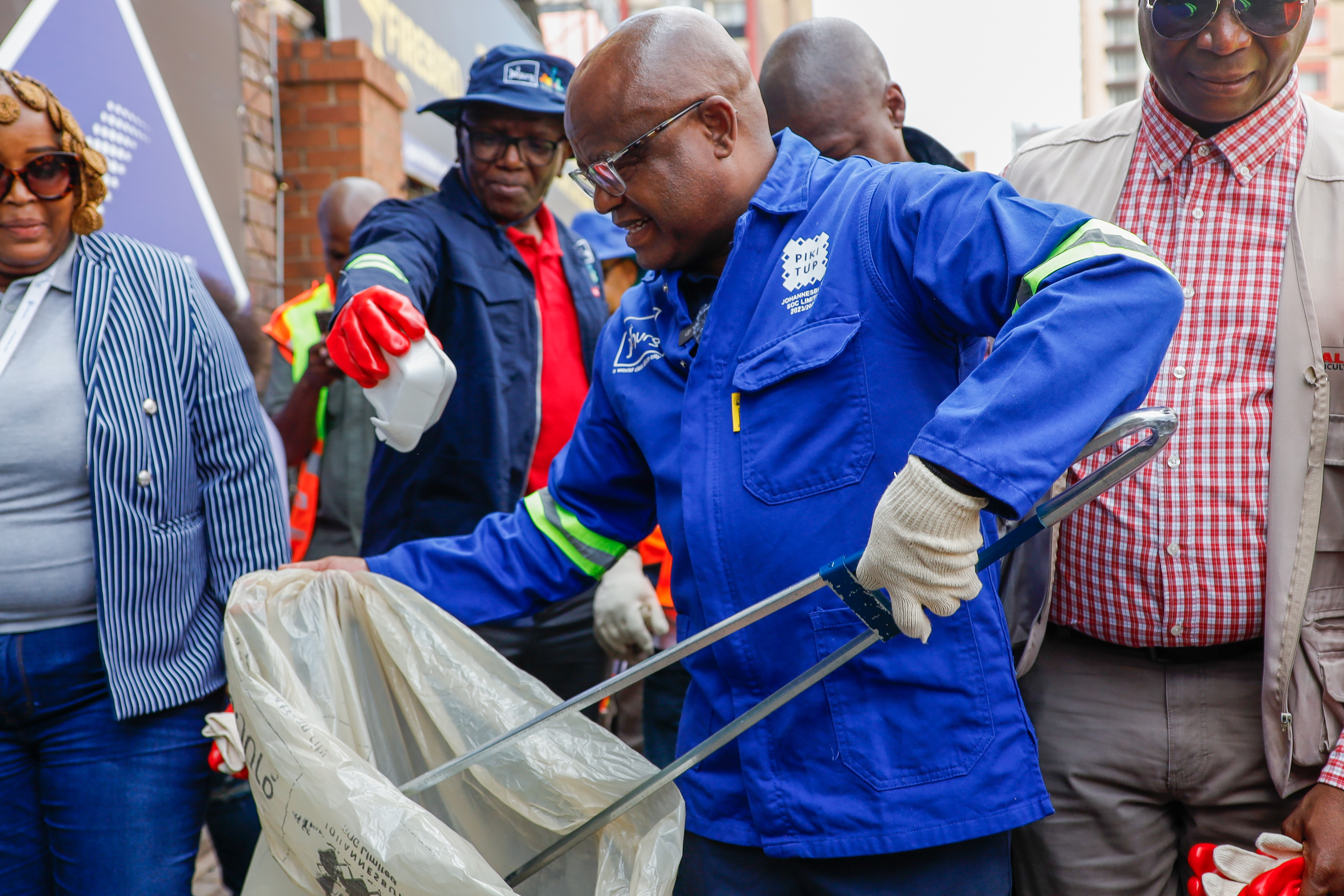In the weeks before the G20, Johannesburg residents watched the city scramble into action. Grass was cut, streets were swept, potholes were patched, highway lights suddenly blazed on routes that had been dark for years. It fuelled a very legitimate anger: Why did it take visiting global leaders for our own city to act as if its residents mattered?
I share that frustration. The criticism of the G20 and the sense that service delivery was reserved for VIP motorcades was not manufactured. It was rooted in years of neglect and broken promises. But I also think we would be making a mistake if we dismissed this summit as nothing more than an elite photo opportunity.
Read more: Lipstick on a pothole: Joburg’s G20 glow-up sparks pride — and fury
Despite all the political noise, the G20 was, in fact, a net positive for Johannesburg.
One of the city’s deepest problems had been the lack of sustained, high-level focus on the basics: water, power, roads, safety, cleanliness. The G20 changed that, at least for a time.
/file/attachments/2984/ED_583158_686305_eac178d38e9abd674cf85bd2242c569d.jpg)
The summit put the executive mayor and his leadership team under intense national and international scrutiny, and it forced the Gauteng and the national government to find money and political will for urgent upgrades.
That “hyper focus” was uncomfortable for political leaders, and that is precisely why it is valuable for residents.
A municipality that is notorious for fudging public participation, ignoring petitions, letters and just about any public pressure campaign, whether it’s for water or clean streets, suddenly faced the reality that global embarrassment and failure would carry an immeasurable political cost.
Red tape untied
Such conditions tend to unblock projects that have been tied up in bureaucratic red tape for years.
Read more: G20 power: Johannesburg cleans up its act for the bwanas’ visit
The numbers don’t lie. An initial R700-million was made available by the national government last year, and an additional R100-million was allocated in the 2025 Medium-Term Budget Policy Statement by Finance Minister Enoch Godongwana, to help fund the city’s readiness.
The various Gauteng government departments reprioritised their budgets and the provincial government committed to fixing streetlights, traffic lights, potholes and stabilising electricity on all major corridors.
/file/dailymaverick/wp-content/uploads/2025/11/ED_582347.jpg)
Meanwhile, the City of Johannesburg refocused its budget towards key infrastructure upgrades. While the numbers are not out yet, it would have certainly included generous overtime allocations specifically around solid waste management, heightened JMPD activity and after-hours maintenance.
Furthermore, various national government departments and their agencies probably made budget available. For instance, the Extended Public Works Programme run by the Department of Public Works played a role in the city’s clean-up.
Going the extra mile
Our city may be overrun by political interference, chaotic or unstable leadership, unclear priorities and procurement failures, but that is not our entire story.
There are plenty of capable, committed people working for and with the City of Johannesburg: engineers, planners, technicians, cleaners, waste workers, metro police, administrators and given the opportunity, they will go to extraordinary lengths to help make South Africa’s most important city succeed. Many live in the same neighbourhoods we do.
The City of Johannesburg, at a time when it was most broken and fragile, was gifted an opportunity few cities receive. And whether it was fair or not, our city became the recipient of a massive capital spend funded by the national taxpayer.
Johannesburg’s political leaders must be thankful for this unearned generosity, seize the opportunity and, out of respect to the country, not squander this opportunity. DM
Julia Fish is JoburgCAN’s regional manager.




 Johannesburg mayor Dada Morero leads the CEO Clean-Up Campaign at Joubert Park on 12 November 2025. The three day campaign brought together the mayor and Johannesburg’s leading CEOs for visible action to restore the cleanliness, functionality and dignity of key precincts. (Photo: Gallo Images / Sharon Seretlo)
Johannesburg mayor Dada Morero leads the CEO Clean-Up Campaign at Joubert Park on 12 November 2025. The three day campaign brought together the mayor and Johannesburg’s leading CEOs for visible action to restore the cleanliness, functionality and dignity of key precincts. (Photo: Gallo Images / Sharon Seretlo)